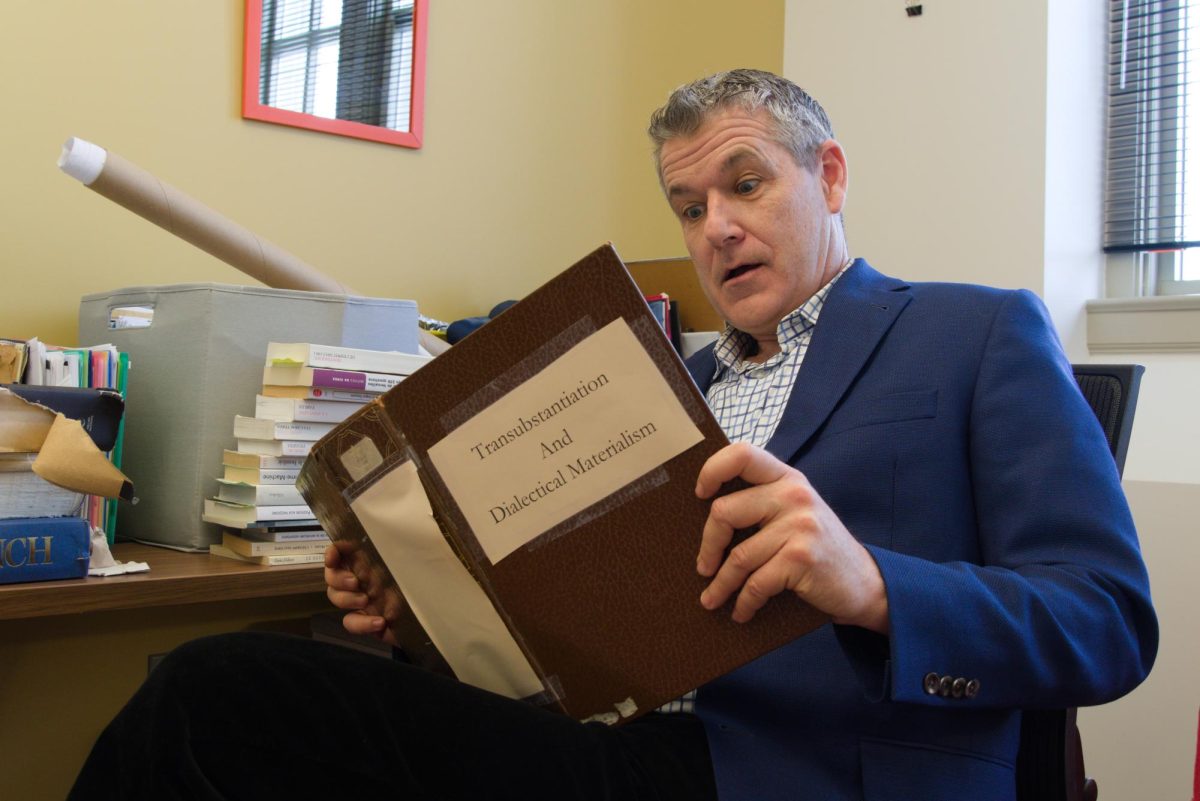Several times a day during conversation, my friends notice a mischievous look on my face. They silently plead with me to say nothing. I can’t help myself, though. I always make a pun.
For the record, all the groaning and eye-rolling in response is an overreaction. Is it really my fault that there are always a-pun-dant opportunities for wordplay?
It’s no secret that the English language can be strange, confusing and sometimes boring. In my first semester here, I’ve read too many academic papers containing the terms “epistemological,” “ontological” and “tautology” in the same paragraph.
That’s why it’s important to embrace the silly parts of the English language by taking advantage of the words that will vex its speakers for eternity. These words happen to be my favorites, the words with multiple meanings, spellings and pronunciations — although I prefer the term pun-nunciations.
I recognize that most people don’t go through their day looking for ways to exploit quirks in the English language, but it would be a way to make their lives a lot more interesting. This op-ed is not only an excuse to see how many puns I can cram into 550 words — some would say a crime this bad deserves a pun-ishment — but a call from a pun-dit to appreciate how surprising and fun — sorry, pun — everyday language can become.
I think of pun-making as putting together a fleeting jigsaw puzzle, a very piece-ful activity. The art of puns is all about timing. You can’t make puns on command. You need to wait for the right moment and act quickly when you notice its presence/presents. There’s a small window of opportunity to capitalize on a crucial double meaning — and no, I don’t mean capitalizing as in turning letters to uppercase, but if that was your first thought, you’re getting the hang of it — and no, I’m not talking about monkeys.
After you say the pun, either with a straight face or a stifled giggle, there will be a pause — or paws, if you’re talking to your dog. Then the reaction. Usually a frigid stare. Brrr-ling! My roommate always has a react-shun, as in, she ignores me completely.
A pun is one of the most irreverent forms of speech because it can turn anything into something else and a-Noyce everyone around you. You’ll get some bang for your Bucks-baum! Believe it or not, that last pun was my roommate’s idea.
Bonus points if you in-GORP-orate your friend’s name into the pun, since some people’s names are just meant for puns. You’ll know it when you hear it — they’ll “no” it when they hear it.
To say that dad jokes are just for dads is Anne example of Harris-y. We all should embrace puns without guilt or pun-nance.
I’m hoping to revive the pun club because I think our campus can benefit from people enjoying themselves by cracking jokes that are cornier than the inside of a HSSC. We might also pun-der the weight of the world or Stew (Makerspace) over our troubles. Depends on the meeting agenda.
Of course, you don’t have to be part of an organized group of punsters to put your own spin on words. To borrow a slogan from an old pun club T-shirt, let’s play some prose sports.
I’m giving you permission — go forth and unleash pun-demonium!







